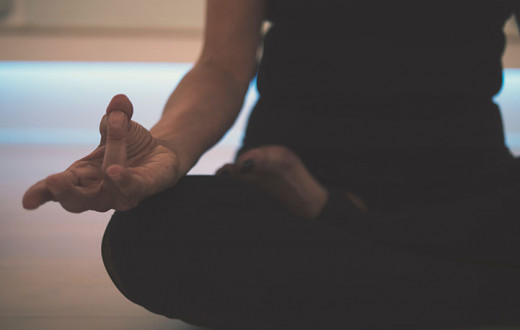By Elizabeth Herman | Posted: March 13, 2020
If your boss walks into your office at the end of a long day and makes additional or unnecessary demands, or the copy machine breaks down right before the deadline for your report, or you feel sick and need time off but can’t afford it, you may start to worry and experience symptoms of stress leading to an angry blow up. If you’re a parent, you know the signs of an oncoming temper tantrum in your own children. But learning to stop an episode of anger in yourself is the first step in helping your child do the same.
When any problem gives you a feeling of pressure and stress, how do you react? At times, when you start to feel like you could easily get angry, but you know you’d rather not, how do you redirect yourself?
There are a number of techniques for stopping yourself from blowing up. Listening to your body at any given moment will provide clues to what’s really needed. Sometimes it may be necessary to release energy through physical activity, and other times calming and slowing your system down may be best. Here are several options for how to treat your body and mind when stress begins to affect your mood:
1. Go for a walk outside
Being outdoors in fresh air can really change your outlook within minutes, sometimes even seconds, of stepping through the door of your home or workplace. As David G. Allen describes how hiking improves his whole family’s mood, “Once we are on the trail a switch is flipped. It’s unfiltered adventure, discovery, connection and beauty. We are demonstratively happier.” Walking for 20-30 minutes a day can comfortably relieve high pressure touchiness.
2. Walk or dance inside
When the weather is cold, windy, rainy or snowy, I will sometimes forego my daily walk outside and stay inside to exercise with an aerobic walking or dance workout video. I enjoy the workouts designed for women aged 50 and above, since I’m one of them. These videos usually have positive self-talk coaching included. But, at other times, I will workout and dance without a video, and just improvise. Either way, I can feel the tension dilute and dissolve with indoor exercise as well.
3. Do yoga asanas or basic stretches
Yoga postures that help to prevent anger include child’s pose, tree pose, downward facing dog pose, etc. They calm the mind and help to restore your sense of power over situations in the outer world. They are best practiced slowly and regularly, without pushing your body too far or straining. By going into a posture, you can quickly remove yourself from tension, and allow your mood to transform as you place your body into the shape of a different form as well. More informally, stretching the muscles as you would before and after exercise can also take away stress at any time of the day or night.
4. Breathe
With different ways of breathing, you can quickly and effectively change how you feel for the better. Breath techniques that relieve pent up stress that could lead to anger include ocean (ujjayi) breath, bee humming (bhramari) breath, and alternate nostril breathing. All of these powerful ways of breathing have been time-tested since yoga was invented thousands of years ago, and they really work.
5. Chant
Creating harmonious vibrations via chanting and singing can also affect how stress builds up towards an angry boiling point. The universal sound of OM is perhaps the simplest thing to chant and helps bring your mind into a calm, meditative state, especially if you close your eyes while chanting. Whenever you experience an impulse to emit angry sounds resulting from your accumulating stress, switching into a chant of peaceful sounds can change how you feel. It’s better to choose a positive sound that can regulate how you feel, rather than letting the negative feeling control the sound you make.
6. Meditate
Regular meditation can reduce the overall frequency and severity of your difficulties with stress and angry reactions. By sitting quietly for a few minutes every day, the tension gradually dissipates and you begin to see your problems from a different perspective.
To learn more about any of these stress management techniques, find a Happiness Program or Sahaj Samadhi meditation course near you.
Elizabeth Herman writes, offers writing support to clients, teaches, and volunteers for a better world. She has a PhD in Rhetoric, Composition and Literature. Find her on Facebook or Twitter.





























